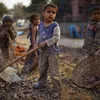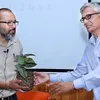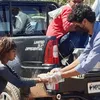This doctor-turned-IRS officer fed 5 lakh migrant workers during coronavirus lockdown
A passionate philanthropist who wants to reform the education system in India, Dr Aditya Prakash Bhardwaj set up a social organisation called ‘WeCare’ to provide fresh meals to migrant workers during the coronavirus lockdown. The group fed about 15,000 migrant workers daily, along with stray animals
In early April, when Lockdown 1.0 was in full swing, Dr Aditya Prakash Bhardwaj, along with a million other Indians, tuned into the daily news, and saw with dismay images of thousands of migrant workers making their way back home on foot after the government suspended transportation.
The shutdown was necessary to decrease the spread of the coronavirus, but the government had not foreseen the sudden mass movement, and was ill-equipped to deal with it.
News reports continued to highlight the difficulties these migrant workers faced as they walked back home – video footage of women walking under the hot sun with children on their backs, of old men and women painfully keeling over as their legs gave out, of pregnant women whose health kept getting worse, even of people dying on the sides of the road distressed the country, and the situation kept getting worse.
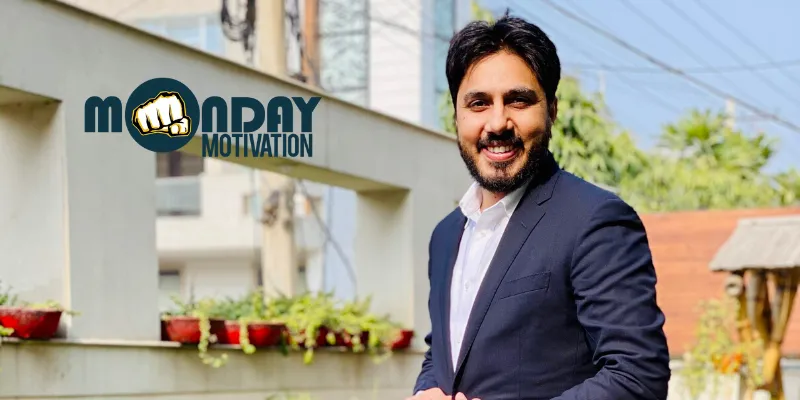
Dr Aditya Prakash Bhardwaj
"Living in Faridabad, a city that lies between Delhi and Uttar Pradesh, I was shocked to see these migrant workers ‘walking’ miles back to their hometown,” Aditya tells SocialStory.
Empathetic to their plight, doctor-turned-IRS officer Aditya, sprang into action, and formed a local activism group, WeCare.
Others had the same idea too – humanitarian organisations started mobilising and distributing rations and survival kits to aid the migrants, but WeCare realised that the workers’ requirements were more short term, and that while they appreciated whatever was being provided to them, they needed something that could just help them get through the next day, so they could reach home safe and sound.
Aditya decided that his team would instead prepare and serve fresh meals.
To achieve that, Aditya took over a kitchen attached to a temple on Mathura road – an area hundreds of thousands of migrants had been passing through.
“A desire to create a hunger-free society inspired me to start this initiative, which aims to feed those who were unable to meet their needs during lockdown. I believe that food should be available to humans, as well as animals, as it their basic right,” he says.
“No one should be forced to go to sleep on an empty stomach,” he added.
Inspired by his efforts, families living in the area, as well as cops, came forward to help him. With 50 families – and thereby 50 kitchens – working simultaneously, Aditya built what he called a ‘social care network’, through WeCare.

Distribution of essentials to the workers.
During the height of the lockdown, the team distributed about 10,000 to 15,000 meals per day. As days went by, the number of migrants travelling across the country began to decrease, especially after the government started running emergency transportation for them.
The team then decided to target slums, and started distributing dry rations to those who needed them the most. “We primarily targeted the vulnerable groups – elderly, those who were rendered jobless, and children below the age of one,” Aditya says.
“We provided milk to more than 190 kids, and protein-rich food, like soya beans, pulses and eggs, to pregnant women. We also provided cooked meals three times a day to those who didn’t have the provisions to cook.”

The team serves freshly prepared food to the workers while maintaining hygienic conditions.
The meals were usually khichdi (porridge) for breakfast, dal and rice for lunch, and chapati with sabzi for dinner.
Aditya was soon joined by 20 migrant workers who volunteered for the organisation in return for three meals a day, and a place to sleep.
WeCare for animals
On day four of the first lockdown, Aditya learned that 10 monkeys had died at a railway station nearby. The information tugged at his heartstrings.
“We realised the monkeys were often fed by the locals, but due to the absence of people around, they died of hunger. So, we decided to start helping animals as well,” the social activist says.
WeCare formed a special team, comprising 12 members, who were responsible for feeding stray animals. The food served to the animals was mostly what was leftover from what had been cooked for the workers that day.
The team also ensured the animals had access to clean, fresh water every day, especially those living in the mountains of the Aravalli range. Even today, volunteers have been filling up at least 200 buckets, daily, to help parched strays.
From doctor to IRS officer
After completing his MBBS from PGIMS, Rohtak, Aditya wrote the UPSC exam, which he passed with flying colours. He joined the Indian Revenue Services in 2015, and began his philanthropy work.
Aditya says he has always been passionate about improving the lives of children in rural areas. He started spending his weekends counselling children from vulnerable and impoverished families, visited government schools, and helped improve educational structures in at least 50 schools.
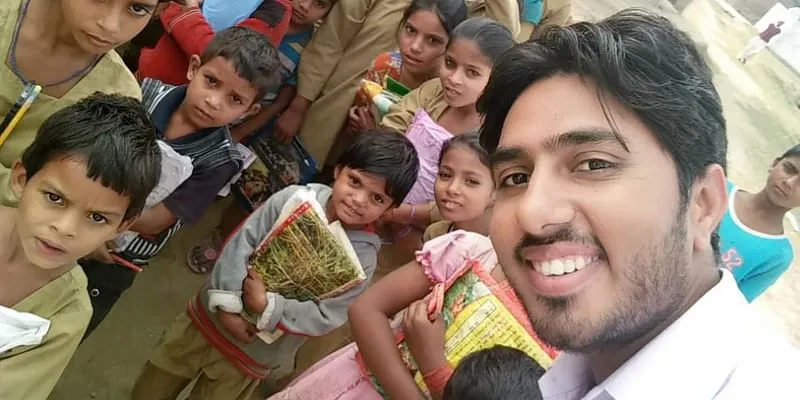
Aditya conducts counselling sessions at government-run schools.
“Having studied in a government school myself till Class 8, I know that these children lack the resources for improvement,” Aditya says. “So, I want to make things better for them.”
Based on their interest and capabilities, he helps children identify career goals and charts the route they need to take to get there.
A man of letters, Aditya writes poetry and prose to shine a light on the pain and suffering that exists in our society and advocates for women’s rights.
Plans for the Future
Aditya wants to improve the education system in India, and help children understand the important role education can play in ameliorating their living standards.
He wants to keep helping people and animals in distress, even after the pandemic eases and life gets back to normal.
WeCare hopes to soon extend its efforts to empower women who lost their jobs due to the coronavirus pandemic by employing them at their kitchens. The organisation also wants to create self-help groups across the country, and encourage women to take up chocolate making, and papad and pickle making, as well as traditional embroidery.
“WeCare is an initiative that took shape in a very short span of time, but is functioning very successfully at the moment,” Aditya says. “If we can achieve so much in this time, I’m confident that we can do a lot more to help the underprivileged in the long term.”
Edited by Aparajita Saxena


